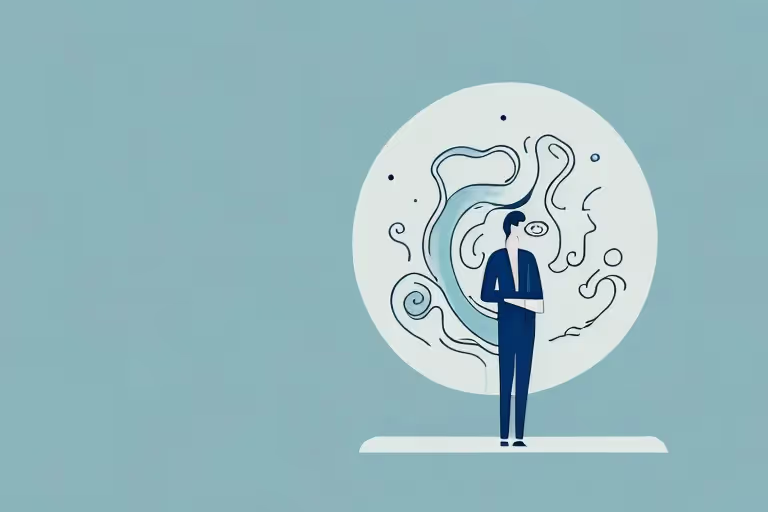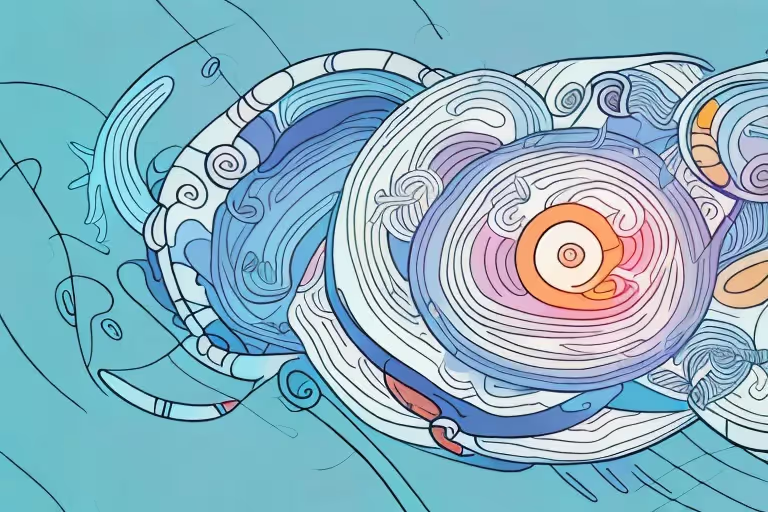Sleep deprivation, a common condition that affects millions of people worldwide, is a state of not having enough sleep. It can be either chronic or acute and is a pervasive issue in societies where the balance between work, life, and sleep is often skewed. This glossary entry will delve into the intricacies of sleep deprivation, its causes, symptoms, effects, and potential remedies.
Understanding sleep deprivation is crucial because it's not just about feeling tired. It's a serious condition that can have significant impacts on a person's physical and mental health. It can affect your ability to function during the day and can lead to serious health problems if left untreated. In the following sections, we'll explore this topic in detail.
The Science of Sleep
Before we delve into sleep deprivation, it's essential to understand the science of sleep itself. Sleep is a complex biological process that involves several stages, each with its own characteristics and functions. It's not just a period of rest, but a time when the body performs essential maintenance and repair work.
There are two main types of sleep: Rapid Eye Movement (REM) sleep and Non-Rapid Eye Movement (NREM) sleep. Each type plays a different role in maintaining health and well-being. NREM sleep, which consists of three stages, is when most physical restoration occurs, while REM sleep is associated with dreaming, memory consolidation, and learning.
Importance of Sleep
Sleep is vital for various aspects of brain function, including cognition, concentration, productivity, and performance. All of these functions suffer when sleep is shortchanged. Moreover, sleep is crucial for physical health. It helps the body repair cells, clear out toxins, consolidate memories, and regulate mood.
It's also worth noting that sleep needs vary across ages and are especially impacted by lifestyle and health. To function optimally, adults need between 7 to 9 hours of sleep per night, while children and teenagers require even more.
Understanding Sleep Deprivation
Sleep deprivation occurs when an individual gets less sleep than they need to feel awake and alert. People vary in how little sleep is needed to be considered sleep-deprived. Some people such as older adults seem to be less affected by lack of sleep, while others, especially children and young adults, are more vulnerable.
The causes of sleep deprivation can be either voluntary or involuntary. Voluntary sleep deprivation is where an individual chooses to stay awake for various reasons, such as work, social life, or entertainment. Involuntary sleep deprivation, on the other hand, can be caused by various medical or psychiatric conditions, such as insomnia or sleep apnea.
Signs and Symptoms of Sleep Deprivation
The symptoms of sleep deprivation can vary depending on the severity of the sleep loss. Common signs include fatigue, daytime sleepiness, clumsiness, and weight gain or loss. Other symptoms can include mood changes, feeling down, and having a reduced sex drive.
Chronic sleep deprivation can lead to more severe symptoms such as hallucinations, paranoia, and memory loss. It can also increase the risk of developing chronic conditions like diabetes, heart disease, and even certain types of cancer.
Effects of Sleep Deprivation
Sleep deprivation can have profound effects on both physical and mental health. Physically, lack of sleep can lead to increased risk of chronic diseases, weakened immune system, and even changes in body weight. Mentally, sleep deprivation can lead to issues like mood swings, anxiety, depression, and impaired cognitive function.

Moreover, sleep deprivation can have serious implications on safety. Lack of sleep impairs coordination, reaction time, and decision-making, increasing the risk of accidents and injuries. In fact, sleep deprivation has been linked to some of the world's biggest disasters, including the Chernobyl nuclear disaster and the Exxon Valdez oil spill.
Long-term Consequences
Chronic sleep deprivation can lead to long-term health problems. It increases the risk of conditions like obesity, diabetes, cardiovascular disease, and even early mortality. Sleep deprivation can also affect mental health, leading to conditions like depression and anxiety disorders.
Furthermore, chronic sleep deprivation can lead to poor quality of life, affecting personal relationships, work performance, and overall well-being. It's a vicious cycle - sleep deprivation causes stress and health problems, which in turn can lead to further sleep problems.
Preventing and Treating Sleep Deprivation
Prevention is the first step in dealing with sleep deprivation. This involves adopting good sleep habits, like maintaining a regular sleep schedule, creating a restful sleep environment, and avoiding activities that can interfere with sleep, such as consuming caffeine or alcohol before bed.

When prevention is not enough, treatment options are available. These can range from lifestyle changes and behavioral therapies to medication. It's important to consult with a healthcare provider to determine the best course of action.
Importance of Seeking Help
If you're experiencing symptoms of sleep deprivation, it's important to seek help. Chronic sleep deprivation is a serious condition that can have severe consequences if left untreated. A healthcare provider can help identify the cause of your sleep deprivation and recommend appropriate treatment options.
Remember, sleep is not a luxury, but a necessity. Prioritizing good sleep is investing in your health and well-being. Don't underestimate the power of a good night's sleep!



.webp)






.avif)

%20(1).avif)


.avif)
.avif)
.webp)


.avif)


















































































































.avif)

















.svg)









